FA M ILIE





� DUtcH � en


Duration of the performance: 1h30
Please turn off your mobile phone during the performance. It is not allowed to make audiovisual recordings.

In 2007 in Calais, a whole family hanged themselves: the parents and their two children. Never a motive was found, the suicide note stated: ‘We messed up, sorry.’
Familie is staged by a real family: actors An Miller and Filip Peeters do not only act together as a couple, but for the first time in their career they are on stage with their two teenage daughters Leonce and Louisa – and their dogs.
What reasons, what traumas underlie such a suicide? Familie is an experiment, an ethnological study of today’s private life, an exhibition of the everyday: on stage we see the house of family Demeester – or is it the house of the family Peeters-Miller? Together they reconstruct the mysterious case of the family Demesteer, following the journey of their own family, questioning the construction of family as the cell of life and origin of our world today. ▶
DO YOU HAVE QUESTIONS CONCERNING SUICIDE? DO YOU FEEL LIKE TALKING ABOUT IT? CALL 1813 (FOR FREE)

Fiction and reality mix, as we see on stage an evening like many in families – just that it is the last one. We watch a family eat, shower, learn English, watch videos. We see them talking to each other about everyday things, making phone calls, listening to music, cleaning up the apartment, remembering moments of their lives. And in this exhibition of the normal, the big questions arise: Why are we here? Why am I here? Wouldn’t it be better if we would disappear?
After shooting a new version of The New Gospel with refugees in South Italy and while staging in the burning Amazon Antigone by Sophocles with indigenous activists, Rau and NTGent present with Familie an intimate look on the Western European middle class. ●
Critics called him ‘the most influential’ (Die Zeit), ‘most awarded’ (Le Soir), ‘most interesting’ (De Standaard) or ‘most ambitious’ (The Guardian) artist of our time: the Swiss director and author Milo Rau, artistic director of the NTGent.
Since 2002, he has created over 50 plays, films, books and actions. His productions have appeared at all the major international festivals, including Berlin Theatertreffen, Festival d’Avignon, Venice Biennale Teatro, Wiener Festwochen and Brussels Kunstenfestivaldesarts, and also toured in more than 30 countries worldwide.
Rau has received many honours as well: in 2016, the prestigious ‘World Theatre Day ITI Prize’, as youngest artist ever after Frank Castorf and Pina Bausch. In 2017: ‘the Peter-Weiss-Prize’, ‘the 3sat-Prize’, ‘the Saarbrucken Poetry Lectureship for Drama’ and he was voted ‘Acting Director of the Year’ in the critics’ survey conducted by the Deutsche Bühne. In 2018 he received the European Theatre Prize, and most recently in 2019 he was awarded the first honorary doctorate by the Theatre Department of Lunds Universitet (Sweden). Rau is also a television critic, lecturer and a very productive writer.
DIRECTION
Milo Rau
CAST
An Miller
Filip Peeters
Leonce Peeters
Louisa Peeters
TEXT
Milo Rau & ensemble
DRAMATURGY & RESEARCH
Carmen Hornbostel
COACH
Peter Seynaeve
SET DESIGN
Anton Lukas
COSTUME DESIGN
Anton Lukas
Louisa Peeters
VIDEO
Moritz von Dungern
MUSICAL ARRANGEMENTS
Saskia Venegas Aernouts
LIGHT DESIGN
Dennis Diels
ASSISTENT DIRECTION
Liesbeth Standaert
ASSISTANT DRAMATURGY
Eline Banken
PRODUCTION& TOUR MANAGER
Els Jacxsens
TECHNICAL PRODUCTION& STAGE MANAGER
Chris Vanneste
REALISATION SET
Thierry Dhondt
Luc Goedertier
Flup Beys
Joris Soenen
Pierre Keulemans
Bart Stalmans
Ramon Blancquaert
REALISATION COSTUMES
An De Mol
Mieke Vander Cruyssen
Café Costume
TECHNICIANS
Sander Michiels
Frederik Vanslembrouck
Raf Willems
a.o.
SUBTITLES
Eline Banken
Liesbeth Standaert
THANKS TO Café Costume
Stuntteam de Beukelaer
Marie Goudeseune
Cédric Cerbana
Luk Poppe
Leen Bollaert
Moira Verhofstadt
Ghent Marriott Hotel
PRODUCTION
NTGent
COPRODUCTION
Romaeuropa Festival
Künstlerhaus Mousonturm
Schauspiel Stuttgart
Théâtre de Liège
Scène Nationale d’Albi
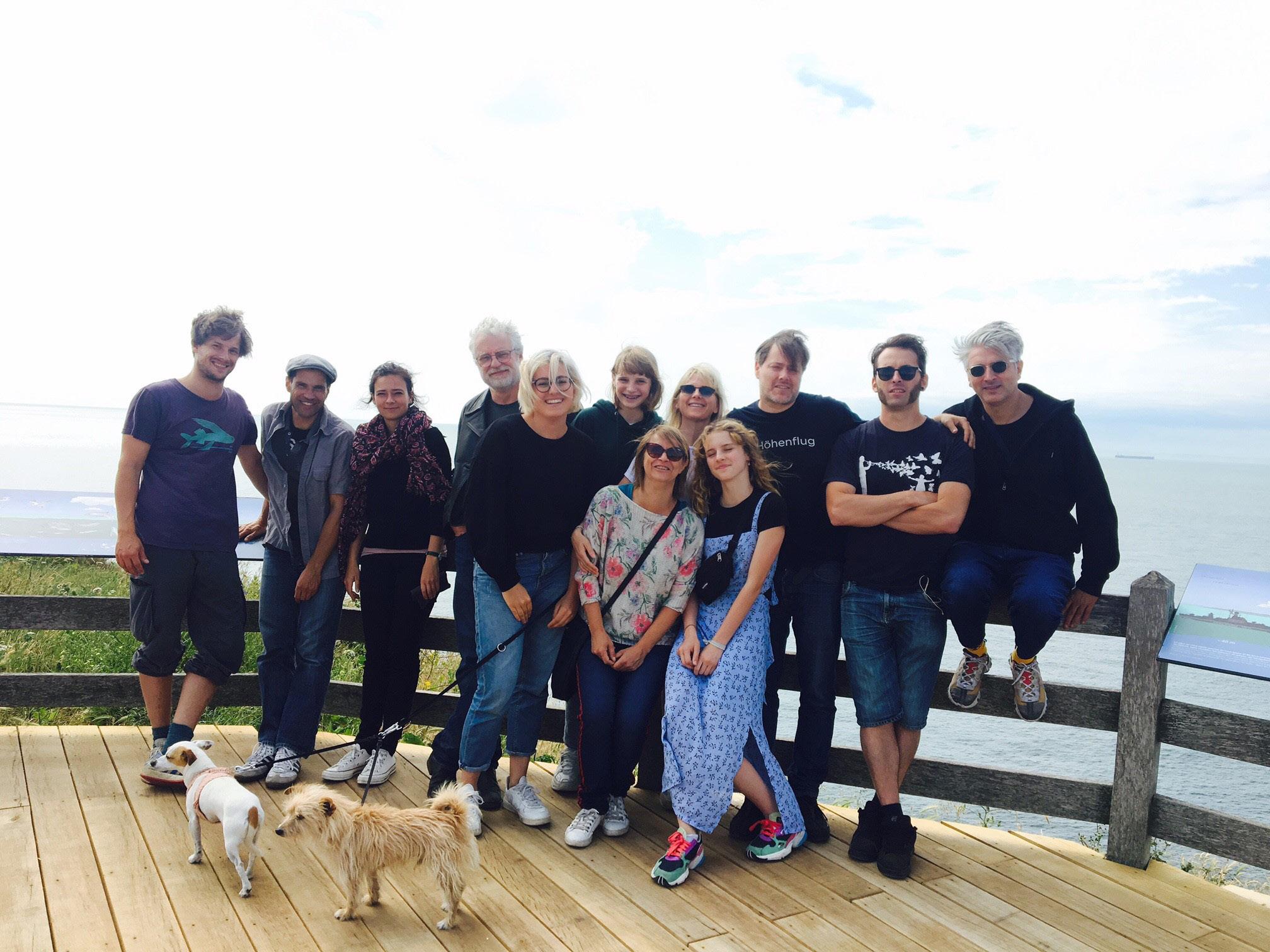
Familie tells the story of a family’s collective suicide and their last evening together. Aren’t families the embodiment of life and the hope that life will continue?
Yes, they are. I have two daughters myself, and there is something you find in a family that you don’t find anywhere else: a kind of homeland, perhaps even meaning. Becoming a parent is like an emotional homecoming after a long time in exile. And that is exactly why every family is also the site of many
disappointments: children grow up and at some point they leave home. Or – and of course this is one of the issues in the family in our play, in which both parents are very successful actors – the parents don’t have enough time for their children and then blame themselves when it is too late.
Carmen HornbostelAs Tolstoy writes: ‘All happy families are alike; each unhappy family is unhappy in its own way.’ The play is based on a true case: the Demeester family from Calais in northern France, near the Belgian border. Why exactly did you opt for this case, a very mysterious one at that?
Milo RauWe looked into a lot of different stories. The focal point is usually a separation, followed by depression and all kinds of disillusions. In the end, one of the parents murders the children, as revenge or as a kind of misdirected altruism. In fact all these family tragedies are very similar: there is always a psychological explanation, and of course it would be possible to re-enact that on stage.
But what interested us was the inexplicable, this stark ‘why?’ No one in the Demeester family had psychiatric or financial problems, nobody was coping with illness or using drugs. There was no separation or desire for revenge. One evening these four people simply decided to end their lives. They wrote an absolutely minimal suicide note: ‘We messed up, sorry.’ And then the parents and their two children hanged themselves in the conservatory. It’s a mystery.
Carmen HornbostelIn the play, you work with the Peeters-Miller family: two famous Belgian actors and their two teenage daughters. What does this family stand for? Are they representative in any way?
Milo RauIt’s an ideal family for what we are doing. They are about as happy as an average family, with the problems we are all familiar with. The parents are middle class, have good careers as television and theatre actors, and the children go to a good school. They experience the usual conflicts in their respective roles as a wife, father or daughter. It is precisely because the case of the Demeester family is reflected in a family that most theatregoers can probably identify with, that we can avoid being sensational when we investigate the conflicts between the desire for independence and the fear of loneliness, between self-empowerment and reliance on others.
After all, my plays are always based on a sense of normality: in the Europe Trilogy I tell the story of violence in Europe from the perspective of completely average European citizens, and in Five Easy Pieces we see the case of the murderer Dutroux through the eyes of Belgian children. Familie works the same way. We see a completely normal family telling us about themselves and we witness their final evening. I believe the Peeters-Miller family is genuinely typical for the middle class in Western Europe today. In other words: they live with exactly the same contradictions that we all do.
‘THEY LIVE WITH EXACTLY THE SAME CONTRADICTIONS THAT WE ALL DO.’

The set during the rehearsals

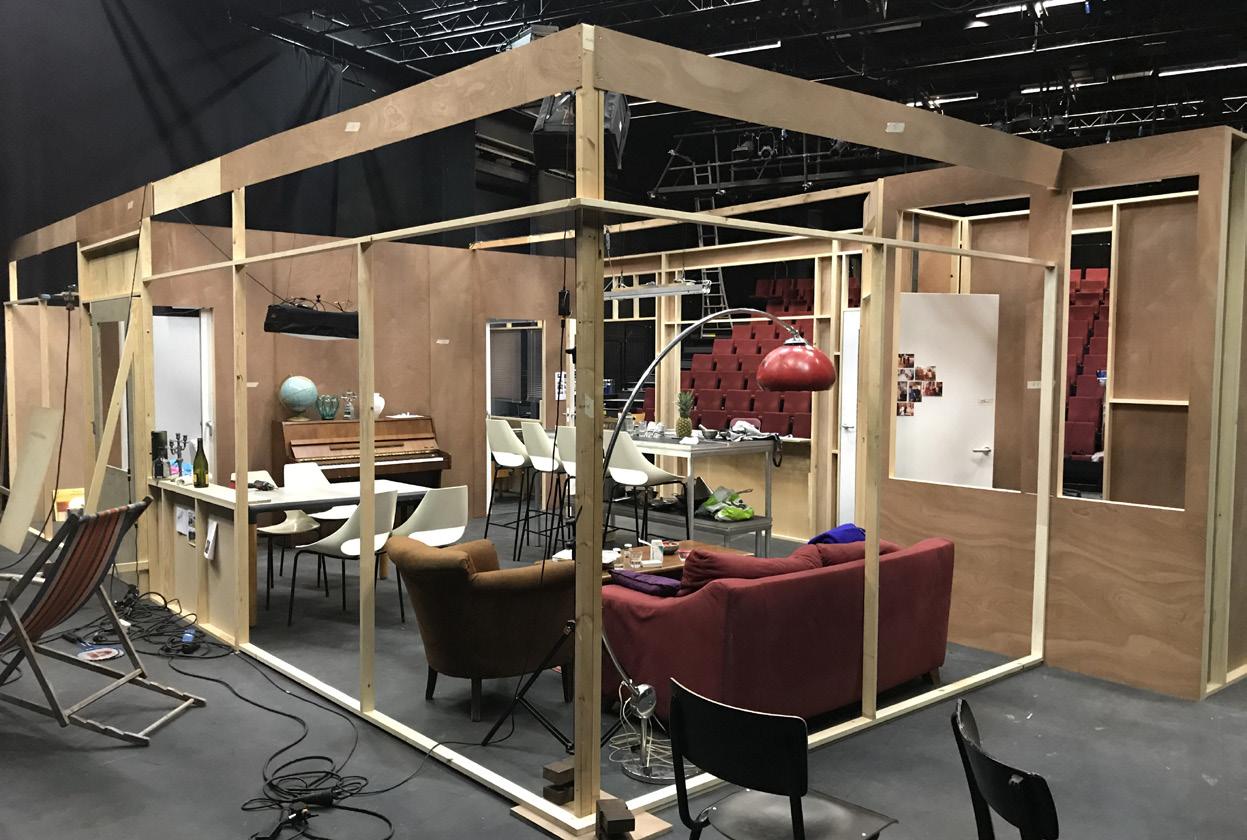 © Thierry Dhondt
© Thierry Dhondt
Carmen Hornbostel
© Thierry Dhondt
© Thierry Dhondt
Carmen Hornbostel
What do you specifically mean by that?
Milo RauThey have two cars and a big house, they consume too much, travel too much, live at the expense of future generations and of course at the expense of the third world. They love each other, but they are often unable to express their love the way they would like to. The everyday lives of two star actors are very hectic, which is why the children are at boarding school. And they ask all the questions that teenagers inevitably ask: do I want to live the way my parents do? What am I supposed to do with my life? And why are we alive at all? People of that age are very preoccupied by the existential, of course, full of doubts and full of self-confidence at the same time, which is also why the play focuses more on the daughters than on the parents. After all, very young people live and think as if they were the first people ever, but also the last, which is really interesting. But – as with the Demeesters – in spite of all their doubts and disappointments, there is absolutely no pressing reason for them to kill themselves. Merely this existential feeling that something is slipping away from them, that they have not lived and are not living the way they imagined they would.
And of course it’s not ‘just’ about the Peeters-Miller or the Demeesters; it also has to do with the fundamental feeling of our time: that we have ‘messed up’ as a species, that we have not lived our lives the
‘THAT FEELING THAT SOMETHING IS SLIPPING AWAY, THAT YOU HAVE NOT LIVED THE WAY YOU IMAGINED YOU WOULD.’
way we should have done. So to a certain extent the Peeters-Miller family is the ideal family to present this metaphysical suicidality of Western civilisation. If this family, with its little problems – a family that is actually completely content – could commit suicide, everyone should actually commit suicide.
Carmen HornbostelAfter Orestes in Mosul, in which you examined the ongoing chain of revenge and global context in the former capital of ISIS, you made The New Gospel, a movie about the passion of Christ, for which you worked with refugees in South Italy and you will stage in the Brazilian Amazon Sophocles’ Antigone together with the landless movement and indigenous activists. These are all huge, political projects, pointing out the disproportions of our world. Why did you now made an intimate play about a normal and happy, Western, middle class family as you say?
Milo RauEspecially in the context of the great ancient texts
I’m working with – Aeschylus, Sophocles, The New Testament – the analysis of the Western middle class makes sense to me. ‘The earth is desecrated by its inhabitants,’ the Bible says, ‘its inhabitants have made themselves guilty.’ It might seem strange to shoot an activist film about Jesus with refugees and slave labourers in Italy or to stage an Antigone in the middle of the burning Amazon, while parallely working on a small-scale ‘theatre essay’ like Familie. But I realised that they belong together: the big and the small stories, private life and large-scale politics.
‘IT ALL BELONGS TOGETHER, PRIVATE LIFE AND POLITICS.’
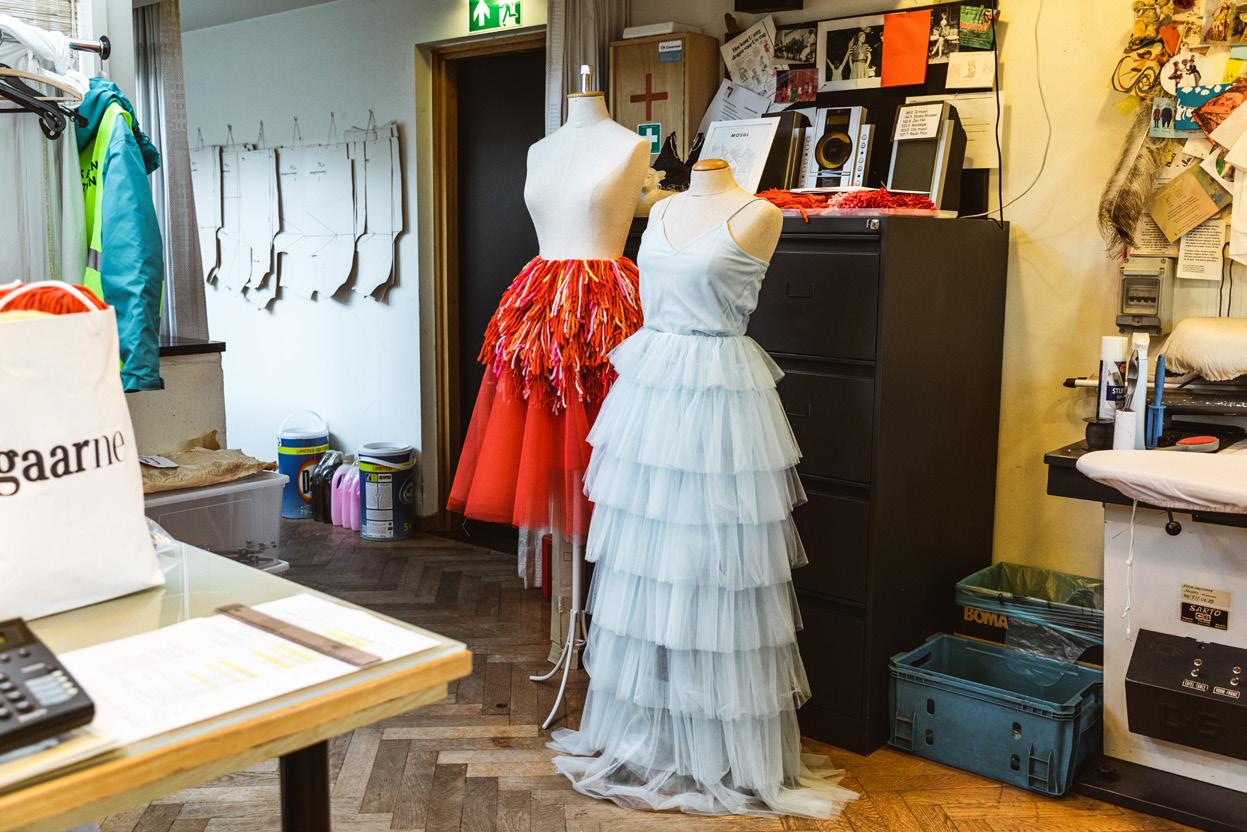
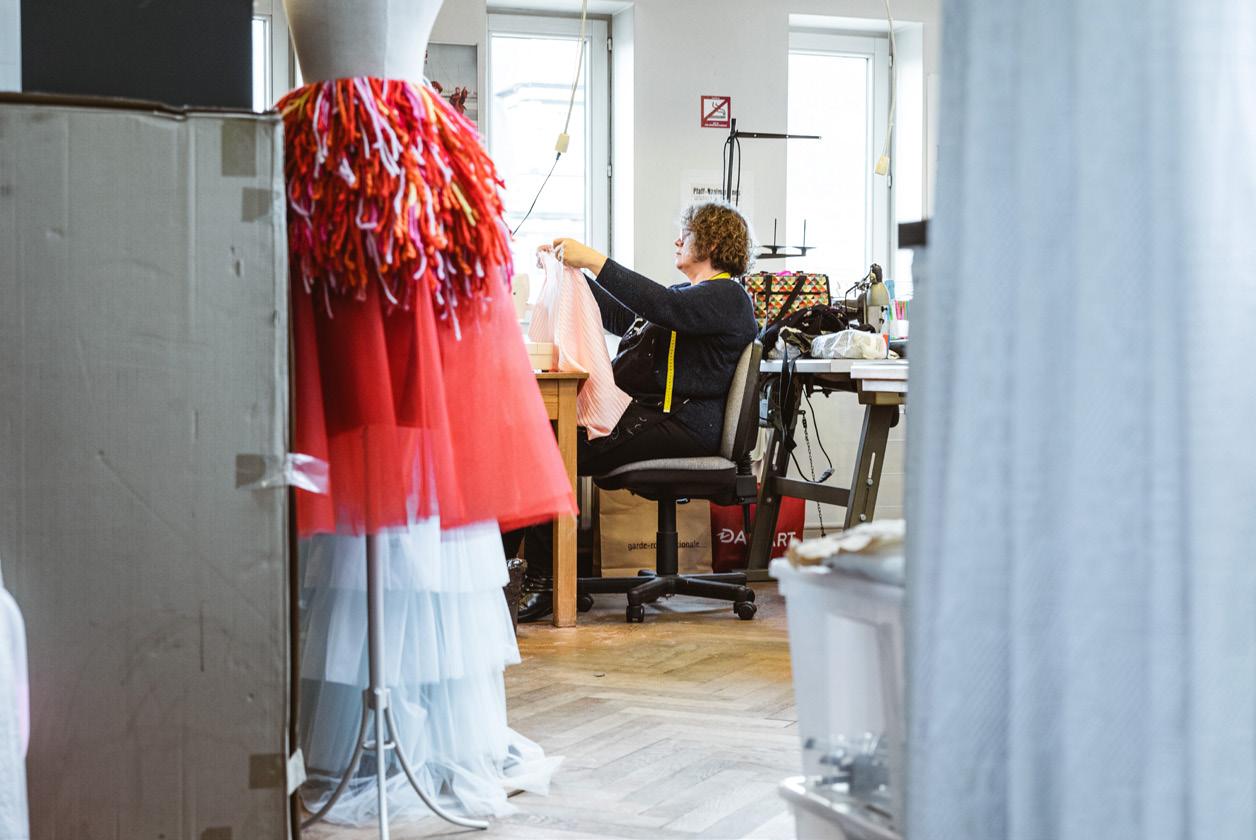 Mieke Vander Cruyssen making the costume of An Miller
© Michiel Devijver
© Thierry Dhondt
Mieke Vander Cruyssen making the costume of An Miller
© Michiel Devijver
© Thierry Dhondt
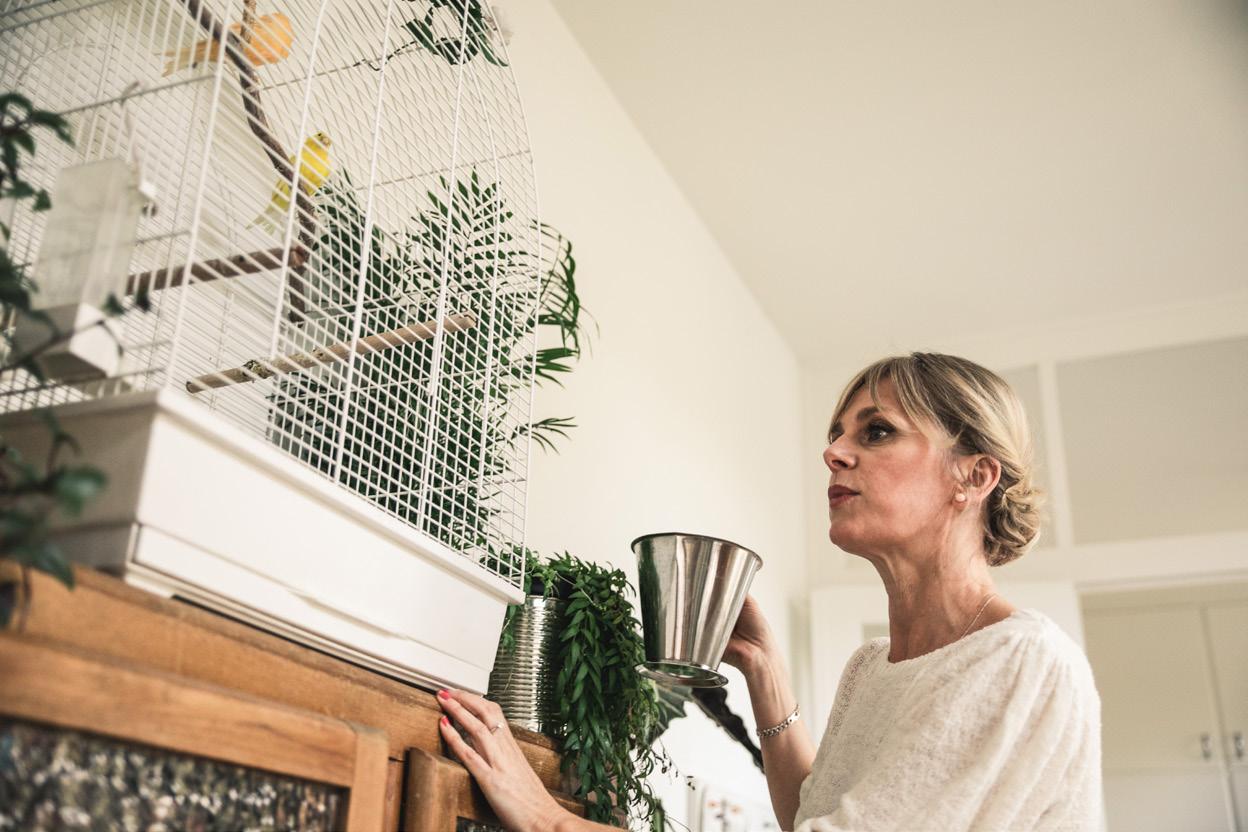
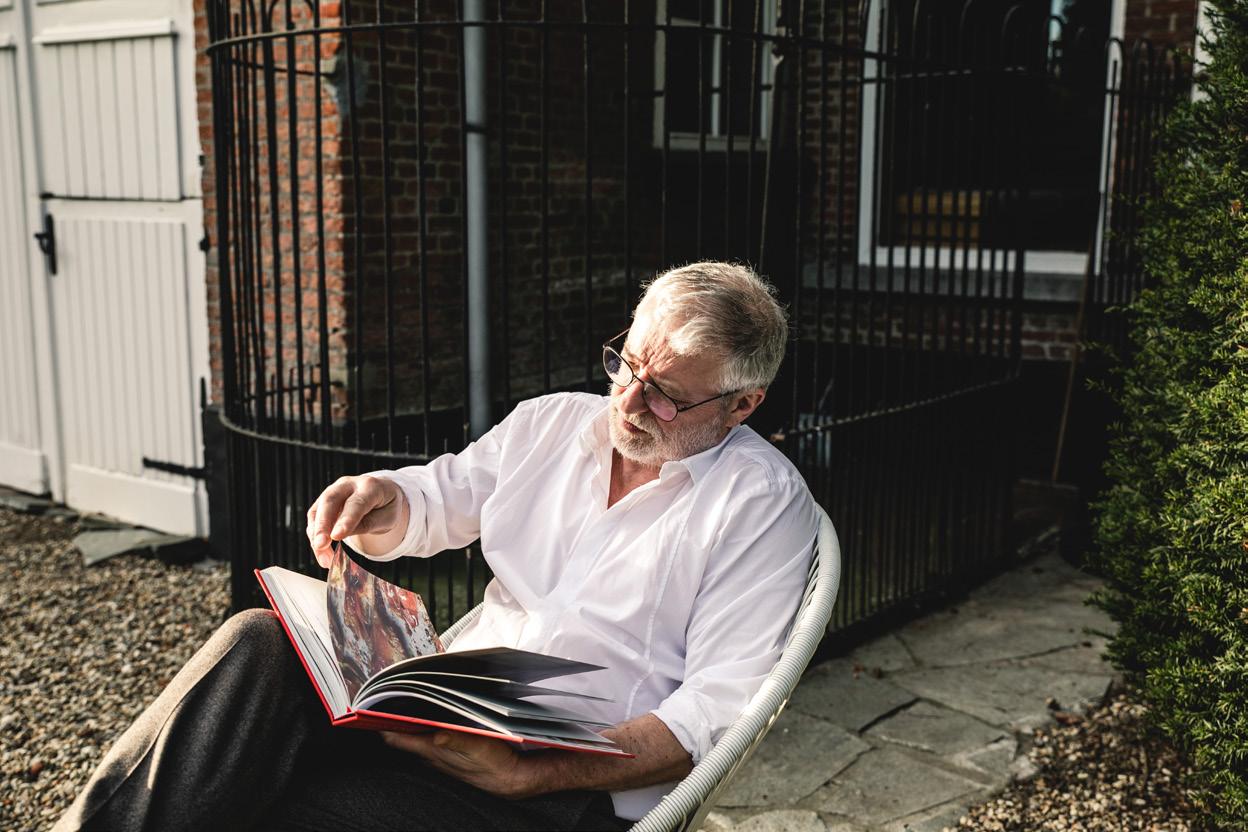 An Miller
An Miller
After all, these refugees and farm workers are only slaves because we consume the way we do, the Amazon only burns that we can live the way we live. And it doesn’t even make us happy.
Carmen HornbostelThe world’s population is growing statistically by 2.5 people every second. It is not clear how we are going to meet those people’s basic needs, dispose of their waste and reduce their CO2 footprint. Is there any justification left at all for having children? Is there still a way out or is our situation hopeless?
Milo RauOf course anti-natalism would be the easiest way out: if humanity were to disappear, the planet would no longer have a problem. I believe that today’s generation of children and teenagers are the first to grow up with this idea: that objectively speaking, every human being is one too many and that the future will be worse rather than better. Of course that is in the play too: the two ‘narrators’ are the Peeters children. Teenagers wonder anyway about what it is all for. It’s an age when you’re between childhood and adulthood, when you lose the homeland of your family but haven’t yet found a new place for yourself. At the same time, the lessons of the past no longer help.
Carmen HornbostelAsking about the meaning of life is one thing. It’s a whole different thing for a family to discuss it on stage with reference to a case that ended in a collective suicide. Why did you cast a ‘real’ family for this play, and such a famous one?
Milo RauFranz Xaver Kroetz’s Wunschkonzert – a play from the early seventies, in which a lonely secretary commits suicide – was the start of a genre that focuses
on depressed people, usually from a minority, who kill themselves at home. I wanted to stage a play that would pick up on this idea but go deeper, both philosophically and formally. That meant working with people whose stage performances are genuinely rooted in their own lives.
For the Peeters-Miller family, this is an incredibly courageous step to take and one that we greatly admire. But Familie is also quite radical in terms of its formal setting: we watch a family eating, taking a shower, learning English and watching films. We see them talking about everyday things, making phone calls, listening to music, tidying up and so on. In a sense it is Waiting for Godot, but without the existential buffoonery and lofty flights of philosophy: it all plays out in the middle-class banality of our time. What interested us was to portray this nihilistic, melancholic, even suicidal Zeitgeist almost ethnologically, in a glass cage as it were.
Carmen HornbostelYou have often worked with mixed casts of professional actors and amateurs. But this is the first time you’ve worked with a family. Could you detach yourself from your experiences in your own family during the rehearsal process, or did those experiences help you?
Milo RauI really learned a lot! As a director you express yourself through other people, and as I said, the PeetersMiller family is a lot like my own, except that they are all a little bit older. That made the production a bit like a glimpse of the immediate future for me: what happens to a family when the children reach puberty, how you start saying goodbye to each other in a certain sense although you belong together forever.
On the other hand, Familie is a play about the artistic bourgeoisie as a whole, a kind of social

 Leonce Peeters
Louisa Peeters
Leonce Peeters
Louisa Peeters
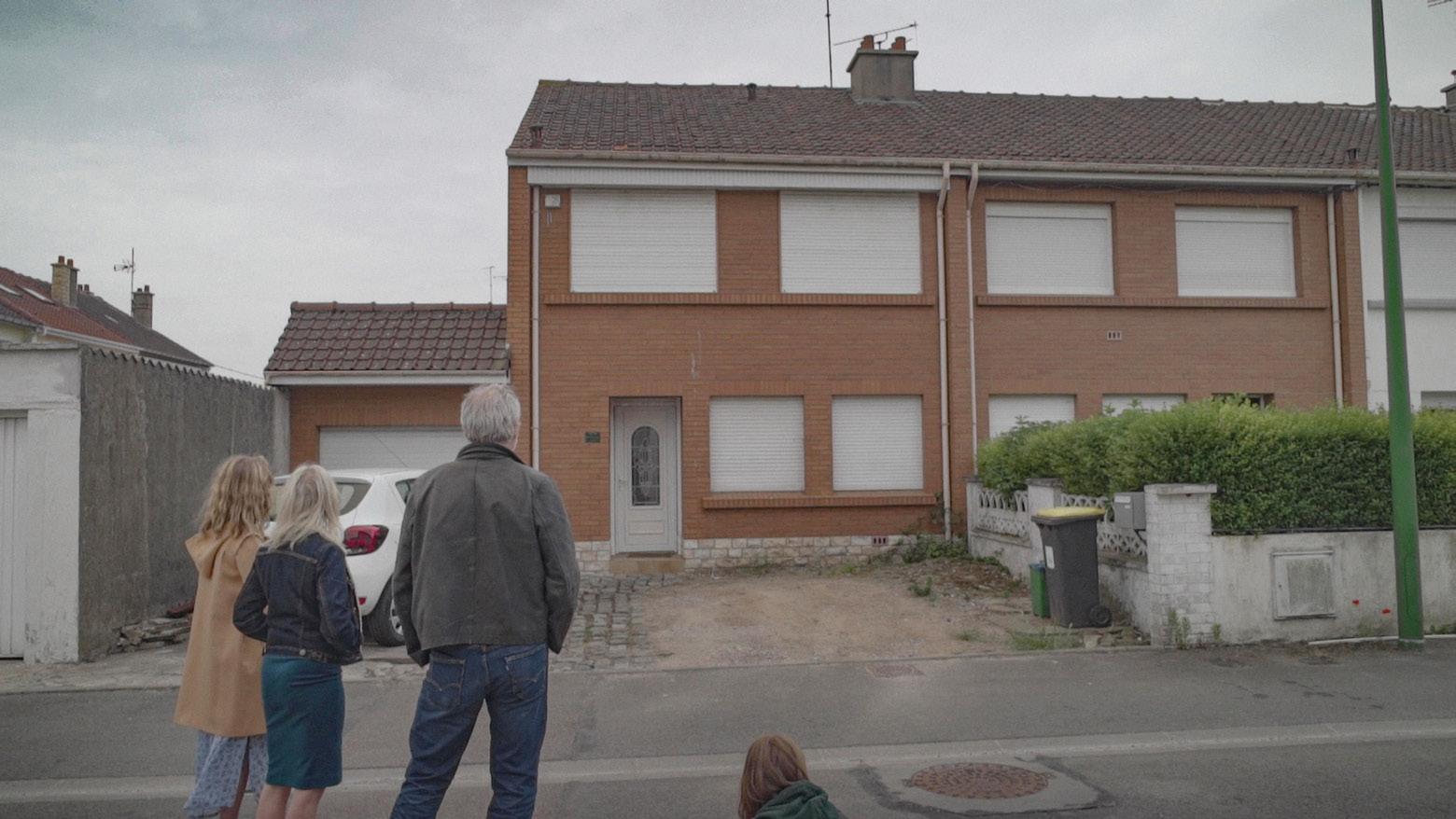
 Familie Peeters-Miller visiting the house of family Demeester
Family Peeters-Miller talking to the neighbour of family Demeester
Familie Peeters-Miller visiting the house of family Demeester
Family Peeters-Miller talking to the neighbour of family Demeester
commentary on our time of helplessness in which the formulas for progress, success and capitalism have reached a dead end. And it is also about ultimate questions: Why exactly are we humans even here? Why do we cling to life so hard, although we will inevitably get old and die, although we are quite objectively the problem and not the solution? In that sense, Familie is also a play about carrying on regardless: Let us live, let us make a home for ourselves in this wonderful world, together and in spite of everything! •
I’m often asked the question: Why is it always so drastic? Why do children play the story of a child killer in Five Easy Pieces? Why is a terrorist allowed to explain his theories in Breivik’s Statement, why is the slaughter of a sheep shown in Lam Gods?
Now, the fact that in the play Familie the hanging itself is shown in full has triggered a debate in our team. The Belgians are a melancholic people, that makes them good artists, but they also have the highest
suicide rate in Europe. Showing the hanging of a family could be like an encouragement.
But the truth is the opposite: when you see how a family, that you’ve met before, hangs themselves, a romantic story becomes a terrible one. Hanging yourself up means dying extremely slowly and painfully, and as far as the children are concerned, it is even murder. The death, glorified in so many works of art, from Shakespeare’s Romeo and Juliet to almost every hip-hop song, not to mention the jihadist suicide videos so influential in Belgium, is simply nothing but pain. And then there’s the black nothing.
In short: talking about suicide on stage without showing what it really is, would be irresponsible. It would be like a war film that shows no victims, a lying aesthetic. One could call it radical, but it is necessary, as it is in our Breivik’s Statement, to confront oneself extensively with the thoughts of a terrorist, in order to know what one can answer. As it is also necessary, in the Lam Gods, to endure the slaughter of a lamb, in order to really understand what eating meat means.
Because that is exactly what theatre does: it replaces ideas, half of the information and its prejudices with experience. Whether these are pleasant, is of course, another question. ●
Excerpt of the column that was published in De Morgen (BE). The original, German text was published in Tagesanzeiger (CH).
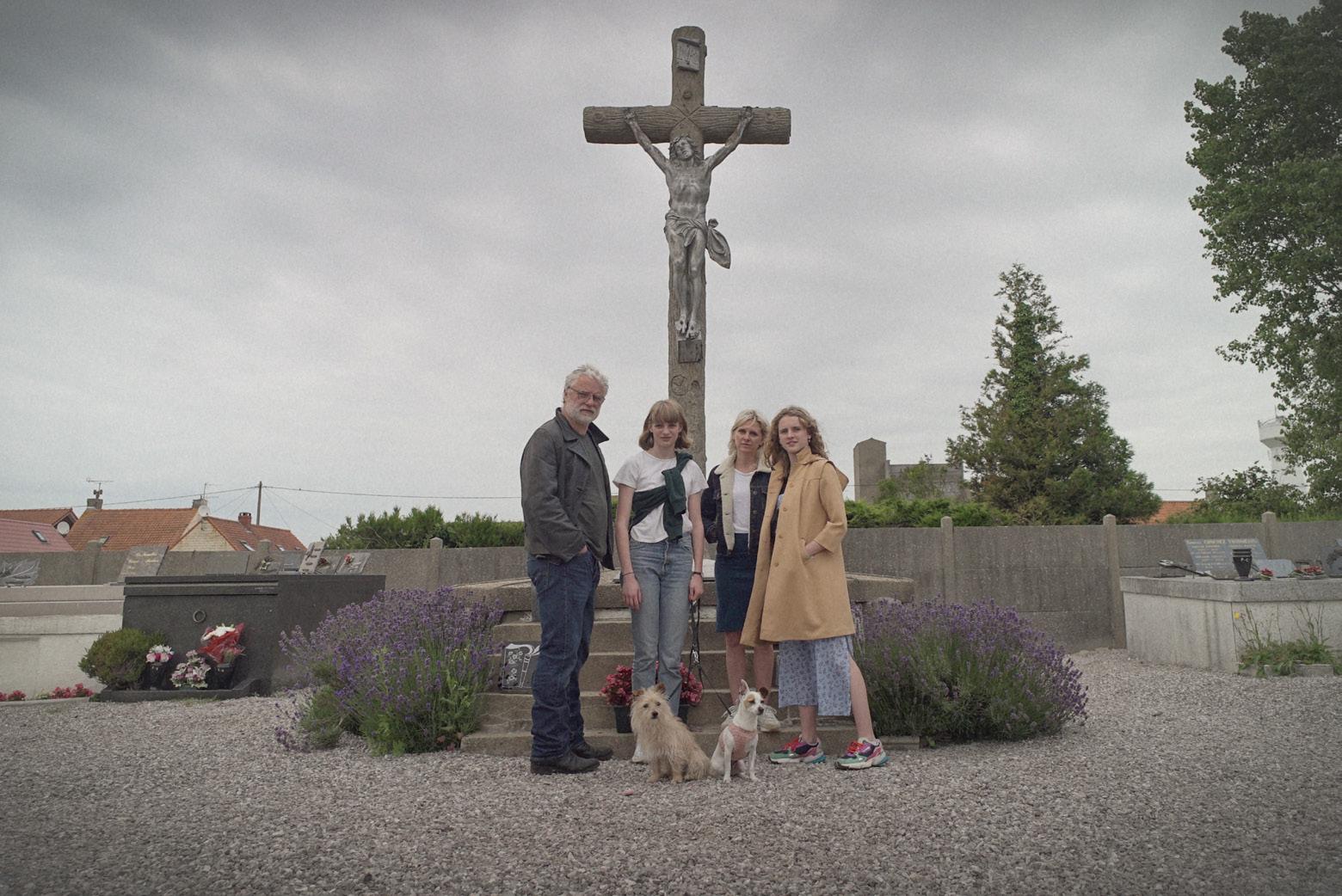 Visiting the cementery where the family Demeester is buried
Visiting the cementery where the family Demeester is buried